-
69articlesSort byLatested
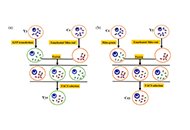 Two cellular models for analyzing mitochondrial heteroplasmyOpen AccessOriginal ArticleAim: Mitochondria are essential for brain development, and the presence of different mitochondrial types is called mitochondrial heteroplasmy. Mitochondrial dysfunction is a central aspect of man...Yaning Hu ... Xingbo ZhaoPublished: January 14, 2025 Explor Neurosci. DOI: 10.37349/en.2025.100669
Two cellular models for analyzing mitochondrial heteroplasmyOpen AccessOriginal ArticleAim: Mitochondria are essential for brain development, and the presence of different mitochondrial types is called mitochondrial heteroplasmy. Mitochondrial dysfunction is a central aspect of man...Yaning Hu ... Xingbo ZhaoPublished: January 14, 2025 Explor Neurosci. DOI: 10.37349/en.2025.100669 Protocol for measuring the benefits of exergames on executive functions under depression through a randomized multi-arm controlled experimentOpen AccessProtocolDepression is characterized by affective symptoms and neuropsychological deficits. After treatment, affective symptoms frequently remit, but cognitive alterations may remain affecting the lives of p...Eloisa Ruiz-MarquezPublished: December 23, 2024 Explor Neurosci. DOI: 10.37349/en.2024.00068
Protocol for measuring the benefits of exergames on executive functions under depression through a randomized multi-arm controlled experimentOpen AccessProtocolDepression is characterized by affective symptoms and neuropsychological deficits. After treatment, affective symptoms frequently remit, but cognitive alterations may remain affecting the lives of p...Eloisa Ruiz-MarquezPublished: December 23, 2024 Explor Neurosci. DOI: 10.37349/en.2024.00068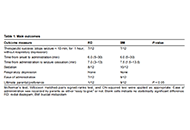 Buccal midazolam vs rectal diazepam administered by parents for continuing and serial epileptic seizures: a randomised controlled trial of parental preferencesOpen AccessOriginal ArticleAim: We aimed to undertake a small study comparing buccal midazolam and rectal diazepam in the emergency out-of-hospital treatment of prolonged or serial epileptic seizures in children. We wanted...Hoong Wei Gan ... William P. WhitehousePublished: December 20, 2024 Explor Neurosci. DOI: 10.37349/en.2024.00067
Buccal midazolam vs rectal diazepam administered by parents for continuing and serial epileptic seizures: a randomised controlled trial of parental preferencesOpen AccessOriginal ArticleAim: We aimed to undertake a small study comparing buccal midazolam and rectal diazepam in the emergency out-of-hospital treatment of prolonged or serial epileptic seizures in children. We wanted...Hoong Wei Gan ... William P. WhitehousePublished: December 20, 2024 Explor Neurosci. DOI: 10.37349/en.2024.00067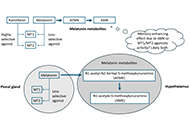 What might melatonin supplementation provide for humans beyond improved onset to sleep?Open AccessPerspectiveMelatonin is widely available as a dietary supplement and/or medicine for sleep. It is an endogenous hormone produced in the pineal gland of the brain, with metabolites providing additional benefici...Leticia A. SheaPublished: November 26, 2024 Explor Neurosci. DOI: 10.37349/en.2024.00066
What might melatonin supplementation provide for humans beyond improved onset to sleep?Open AccessPerspectiveMelatonin is widely available as a dietary supplement and/or medicine for sleep. It is an endogenous hormone produced in the pineal gland of the brain, with metabolites providing additional benefici...Leticia A. SheaPublished: November 26, 2024 Explor Neurosci. DOI: 10.37349/en.2024.00066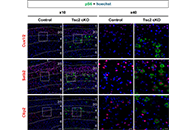 Somatostatin-expressing inhibitory neurons with mTORC1 activation in cortical layers 4/5 are involved in the epileptogenesis of miceOpen AccessOriginal ArticleAim: Patients with tuberous sclerosis complex (TSC) which is caused by hyperactivation of mechanistic target of rapamycin complex 1 (mTORC1) often show giant cells in the brain. These giant cells...Fumiki Yamashita ... Mari Wataya-KanedaPublished: October 29, 2024 Explor Neurosci. DOI: 10.37349/en.2024.00064
Somatostatin-expressing inhibitory neurons with mTORC1 activation in cortical layers 4/5 are involved in the epileptogenesis of miceOpen AccessOriginal ArticleAim: Patients with tuberous sclerosis complex (TSC) which is caused by hyperactivation of mechanistic target of rapamycin complex 1 (mTORC1) often show giant cells in the brain. These giant cells...Fumiki Yamashita ... Mari Wataya-KanedaPublished: October 29, 2024 Explor Neurosci. DOI: 10.37349/en.2024.00064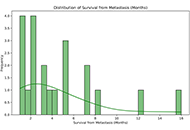 Metastatic glioblastoma multiforme on skin and subcutaneous tissueOpen AccessReviewGlioblastoma multiforme (GBM) is characterized by its infiltrative growth pattern and high recurrence rate despite treatment. While local progression within the central nervous system (CNS) is the r...Maria Ciscar-Fabuel ... Andreu Gabarros-CanalsPublished: October 29, 2024 Explor Neurosci. DOI: 10.37349/en.2024.00065
Metastatic glioblastoma multiforme on skin and subcutaneous tissueOpen AccessReviewGlioblastoma multiforme (GBM) is characterized by its infiltrative growth pattern and high recurrence rate despite treatment. While local progression within the central nervous system (CNS) is the r...Maria Ciscar-Fabuel ... Andreu Gabarros-CanalsPublished: October 29, 2024 Explor Neurosci. DOI: 10.37349/en.2024.00065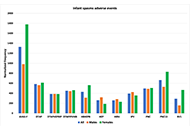 Epilepsy adverse events post vaccinationOpen AccessOriginal ArticleAim: Seizure and epilepsy adverse events (AEs) can occur following vaccination. For epilepsy AEs, they are generally expected to only occur at background population frequencies without associatio...Darrell O. RickePublished: October 16, 2024 Explor Neurosci. DOI: 10.37349/en.2024.00062
Epilepsy adverse events post vaccinationOpen AccessOriginal ArticleAim: Seizure and epilepsy adverse events (AEs) can occur following vaccination. For epilepsy AEs, they are generally expected to only occur at background population frequencies without associatio...Darrell O. RickePublished: October 16, 2024 Explor Neurosci. DOI: 10.37349/en.2024.00062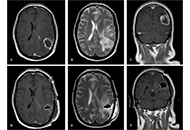 Glioblastoma multiforme recurrence on skin and subcutaneous tissue: a case reportOpen AccessCase ReportGlioblastoma multiforme (GBM) is the most common malignant primary central nervous system (CNS) tumor. It presents an aggressive pattern, with a tendency for intracranial progression despite optimal...Maria Ciscar-Fabuel ... Andreu Gabarros-CanalsPublished: October 16, 2024 Explor Neurosci. DOI: 10.37349/en.2024.00063
Glioblastoma multiforme recurrence on skin and subcutaneous tissue: a case reportOpen AccessCase ReportGlioblastoma multiforme (GBM) is the most common malignant primary central nervous system (CNS) tumor. It presents an aggressive pattern, with a tendency for intracranial progression despite optimal...Maria Ciscar-Fabuel ... Andreu Gabarros-CanalsPublished: October 16, 2024 Explor Neurosci. DOI: 10.37349/en.2024.00063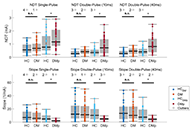 Observing nociceptive detection thresholds and evoked potentials in diabetic patients with and without painful neuropathyOpen AccessOriginal ArticleAim: Diabetic polyneuropathy is the most described complication in patients with diabetes mellitus. A significant percentage of these patients experience disabling neuropathic pain (painful diabe...Tom Berfelo ... Jan R. BuitenwegPublished: October 15, 2024 Explor Neurosci. DOI: 10.37349/en.2024.00061
Observing nociceptive detection thresholds and evoked potentials in diabetic patients with and without painful neuropathyOpen AccessOriginal ArticleAim: Diabetic polyneuropathy is the most described complication in patients with diabetes mellitus. A significant percentage of these patients experience disabling neuropathic pain (painful diabe...Tom Berfelo ... Jan R. BuitenwegPublished: October 15, 2024 Explor Neurosci. DOI: 10.37349/en.2024.00061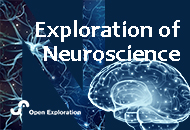 A review of epileptic markers: from ion channels, astrocytes, synaptic imbalance to whole brain network dynamicsOpen AccessReviewEpilepsy, a neurological disorder characterized by recurrent seizures, presents a complex interplay of cellular and molecular mechanisms. The symptoms manifest themselves at various scales, from ion...Swati Banerjee, Viktor JirsaPublished: September 29, 2024 Explor Neurosci. DOI: 10.37349/en.2024.00060
A review of epileptic markers: from ion channels, astrocytes, synaptic imbalance to whole brain network dynamicsOpen AccessReviewEpilepsy, a neurological disorder characterized by recurrent seizures, presents a complex interplay of cellular and molecular mechanisms. The symptoms manifest themselves at various scales, from ion...Swati Banerjee, Viktor JirsaPublished: September 29, 2024 Explor Neurosci. DOI: 10.37349/en.2024.00060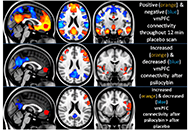 Psychedelics as novel therapeutic agents for chronic pain: mechanisms and future perspectivesOpen AccessReviewChronic neuropathic pain is a significant public health issue affecting an estimated 1.5 billion individuals worldwide. The mechanisms underlying chronic pain are multifaceted and not fully understo...Bushra Yasin ... Alex BekkerPublished: September 24, 2024 Explor Neurosci. DOI: 10.37349/en.2024.00058
Psychedelics as novel therapeutic agents for chronic pain: mechanisms and future perspectivesOpen AccessReviewChronic neuropathic pain is a significant public health issue affecting an estimated 1.5 billion individuals worldwide. The mechanisms underlying chronic pain are multifaceted and not fully understo...Bushra Yasin ... Alex BekkerPublished: September 24, 2024 Explor Neurosci. DOI: 10.37349/en.2024.00058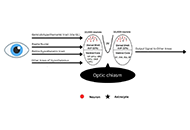 Functional interactions between neurotransmitters and neuropeptides in regulating suprachiasmatic nucleus function and circadian rhythmsOpen AccessReviewThe overt expression of circadian rhythms is a manifestation of the suprachiasmatic nucleus (SCN). This integrated complex function based on the transcriptional/translational feedback loops (TFFLs),...Vallath ReghunandananPublished: September 24, 2024 Explor Neurosci. DOI: 10.37349/en.2024.00059
Functional interactions between neurotransmitters and neuropeptides in regulating suprachiasmatic nucleus function and circadian rhythmsOpen AccessReviewThe overt expression of circadian rhythms is a manifestation of the suprachiasmatic nucleus (SCN). This integrated complex function based on the transcriptional/translational feedback loops (TFFLs),...Vallath ReghunandananPublished: September 24, 2024 Explor Neurosci. DOI: 10.37349/en.2024.00059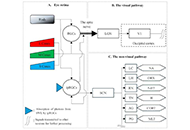 Effects mediated by melatonin and cortisol of artificial light and noise, alone and in combination, on sleep and healthOpen AccessReviewAs an integral part of human chronobiology, the circadian system plays a crucial role in regulating key biological functions, including sleep and the intricate hormonal rhythms of melatonin (MLT) an...Nahum M. GabinetPublished: September 13, 2024 Explor Neurosci. DOI: 10.37349/en.2024.00057
Effects mediated by melatonin and cortisol of artificial light and noise, alone and in combination, on sleep and healthOpen AccessReviewAs an integral part of human chronobiology, the circadian system plays a crucial role in regulating key biological functions, including sleep and the intricate hormonal rhythms of melatonin (MLT) an...Nahum M. GabinetPublished: September 13, 2024 Explor Neurosci. DOI: 10.37349/en.2024.00057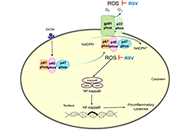 Antioxidant effects of resveratrol in granulocytes from multiple sclerosis patientsOpen AccessOriginal ArticleAim: Neuroinflammation is a characteristic of multiple sclerosis (MS). Resveratrol (RSV) has potent antioxidant properties and has emerged as a promising therapeutic agent for various inflammator...Pedro Henrique Villar-Delfino ... Caroline Maria Oliveira VolpePublished: September 03, 2024 Explor Neurosci. DOI: 10.37349/en.2024.00055
Antioxidant effects of resveratrol in granulocytes from multiple sclerosis patientsOpen AccessOriginal ArticleAim: Neuroinflammation is a characteristic of multiple sclerosis (MS). Resveratrol (RSV) has potent antioxidant properties and has emerged as a promising therapeutic agent for various inflammator...Pedro Henrique Villar-Delfino ... Caroline Maria Oliveira VolpePublished: September 03, 2024 Explor Neurosci. DOI: 10.37349/en.2024.00055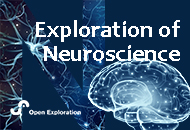 Breaking barriers: the role of NETosis in blood-brain barrier leakage and age-related cognitive declineOpen AccessMini ReviewCognitive impairment is a common age-related comorbidity with blood-brain barrier (BBB) leakage a key event. BBB leakage increases with age, but the mechanisms are still not completely understood. I...Divya Sharma, Rahul KumarPublished: September 3, 2024 Explor Neurosci. DOI: 10.37349/en.2024.00056
Breaking barriers: the role of NETosis in blood-brain barrier leakage and age-related cognitive declineOpen AccessMini ReviewCognitive impairment is a common age-related comorbidity with blood-brain barrier (BBB) leakage a key event. BBB leakage increases with age, but the mechanisms are still not completely understood. I...Divya Sharma, Rahul KumarPublished: September 3, 2024 Explor Neurosci. DOI: 10.37349/en.2024.00056 A longitudinal study over 9 years of the role of social support for people with epilepsyOpen AccessOriginal ArticleAim: In people with epilepsy (PWE) relationships and support are critical. From receiving affection to getting help with household and medical activities support can increase Quality of Life (QoL...Christine Walker, Chris L. PetersonPublished: August 29, 2024 Explor Neurosci. DOI: 10.37349/en.2024.00054
A longitudinal study over 9 years of the role of social support for people with epilepsyOpen AccessOriginal ArticleAim: In people with epilepsy (PWE) relationships and support are critical. From receiving affection to getting help with household and medical activities support can increase Quality of Life (QoL...Christine Walker, Chris L. PetersonPublished: August 29, 2024 Explor Neurosci. DOI: 10.37349/en.2024.00054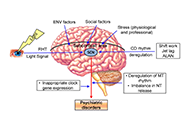 An intricate relationship between circadian rhythm dysfunction and psychiatric diseasesOpen AccessReviewThere is a complex relationship between circadian rhythm dysfunctions and various psychiatric disorders. Circadian (~24 h) rhythms indicate the rhythmic change of different physiological activities ...Saptadip Samanta, Debasis BagchiPublished: August 23, 2024 Explor Neurosci. DOI: 10.37349/en.2024.00053
An intricate relationship between circadian rhythm dysfunction and psychiatric diseasesOpen AccessReviewThere is a complex relationship between circadian rhythm dysfunctions and various psychiatric disorders. Circadian (~24 h) rhythms indicate the rhythmic change of different physiological activities ...Saptadip Samanta, Debasis BagchiPublished: August 23, 2024 Explor Neurosci. DOI: 10.37349/en.2024.00053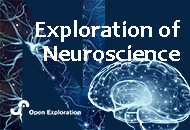 Applying the PRECEDE-PROCEED model to develop MommaConnect: a digital healthcare platform for addressing postpartum depression and improving infant well-beingOpen AccessProtocolThe PRECEDE-PROCEED model is a comprehensive planning and theoretical framework that incorporates epidemiological, environmental, behavioral, and social factors systematically to design, implement, ...Bobbie Posmontier ... Tony MaPublished: August 06, 2024 Explor Neurosci. DOI: 10.37349/en.2024.00052
Applying the PRECEDE-PROCEED model to develop MommaConnect: a digital healthcare platform for addressing postpartum depression and improving infant well-beingOpen AccessProtocolThe PRECEDE-PROCEED model is a comprehensive planning and theoretical framework that incorporates epidemiological, environmental, behavioral, and social factors systematically to design, implement, ...Bobbie Posmontier ... Tony MaPublished: August 06, 2024 Explor Neurosci. DOI: 10.37349/en.2024.00052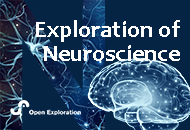 Molecular and cellular processes underlying Unverricht-Lundborg disease—prospects for early interventions and a cureOpen AccessReviewA short overview of the main features of progressive myoclonus epilepsies (PMEs), such as Lafora disease (LD), neuronal ceroid lipofuscinoses (NCLs), and myoclonus epilepsy with ragged-red fibers (M...Eva ŽerovnikPublished: July 18, 2024 Explor Neurosci. DOI: 10.37349/en.2024.00051
Molecular and cellular processes underlying Unverricht-Lundborg disease—prospects for early interventions and a cureOpen AccessReviewA short overview of the main features of progressive myoclonus epilepsies (PMEs), such as Lafora disease (LD), neuronal ceroid lipofuscinoses (NCLs), and myoclonus epilepsy with ragged-red fibers (M...Eva ŽerovnikPublished: July 18, 2024 Explor Neurosci. DOI: 10.37349/en.2024.00051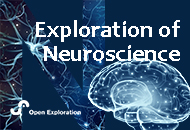 The role of inflammation and oxidative stress in the pathophysiology of depressions: time to consider vitamin C deficiencyOpen AccessPerspectiveDepression is on the rise and medication does not always provide satisfactory relief. This raises the question of a treatment gap that has not yet been (sufficiently) addressed. Inflammation and oxi...Claudia Vollbracht, Marc WernerPublished: July 10, 2024 Explor Neurosci. DOI: 10.37349/en.2024.00050
The role of inflammation and oxidative stress in the pathophysiology of depressions: time to consider vitamin C deficiencyOpen AccessPerspectiveDepression is on the rise and medication does not always provide satisfactory relief. This raises the question of a treatment gap that has not yet been (sufficiently) addressed. Inflammation and oxi...Claudia Vollbracht, Marc WernerPublished: July 10, 2024 Explor Neurosci. DOI: 10.37349/en.2024.00050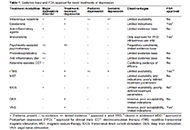 Novel treatments of depression: bridging the gap in current therapeutic approachesOpen AccessReviewDepression poses a significant global health burden, yet current therapeutic approaches focusing on monoaminergic neurotransmission often fall short of achieving full remission and managing acute ep...Amit JagtianiPublished: July 09, 2024 Explor Neurosci. DOI: 10.37349/en.2024.00049
Novel treatments of depression: bridging the gap in current therapeutic approachesOpen AccessReviewDepression poses a significant global health burden, yet current therapeutic approaches focusing on monoaminergic neurotransmission often fall short of achieving full remission and managing acute ep...Amit JagtianiPublished: July 09, 2024 Explor Neurosci. DOI: 10.37349/en.2024.00049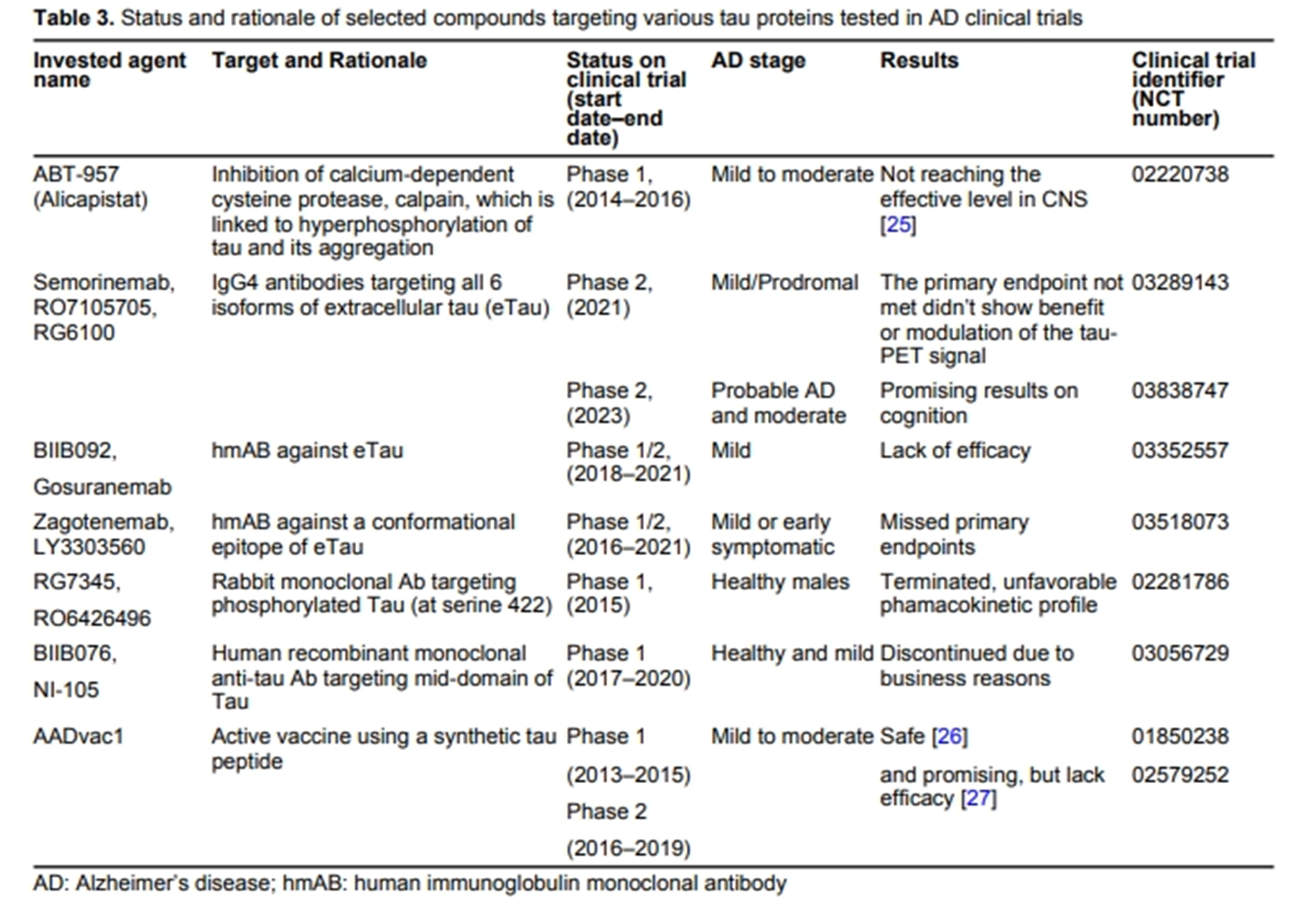 Current therapeutics for Alzheimer’s disease and clinical trialsOpen AccessReviewAlzheimer’s disease (AD) is a major type of dementia and neurodegenerative disease, characterized by memory loss and cognitive decline. Over decades, significant efforts have been dedicated to fin...Danqing Xiao, Chen ZhangPublished: June 27, 2024 Explor Neurosci. DOI: 10.37349/en.2024.00048
Current therapeutics for Alzheimer’s disease and clinical trialsOpen AccessReviewAlzheimer’s disease (AD) is a major type of dementia and neurodegenerative disease, characterized by memory loss and cognitive decline. Over decades, significant efforts have been dedicated to fin...Danqing Xiao, Chen ZhangPublished: June 27, 2024 Explor Neurosci. DOI: 10.37349/en.2024.00048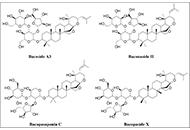 Neuroprotective prospectives of triterpenoidsOpen AccessReviewNeurological disorders including neurodegenerative disorders continue to pose significant therapeutic challenges. Triterpenoids, a diverse group of natural compounds found abundantly in plants, poss...Apoorva A. Bankar ... Nazma N. InamdarPublished: June 26, 2024 Explor Neurosci. DOI: 10.37349/en.2024.00047
Neuroprotective prospectives of triterpenoidsOpen AccessReviewNeurological disorders including neurodegenerative disorders continue to pose significant therapeutic challenges. Triterpenoids, a diverse group of natural compounds found abundantly in plants, poss...Apoorva A. Bankar ... Nazma N. InamdarPublished: June 26, 2024 Explor Neurosci. DOI: 10.37349/en.2024.00047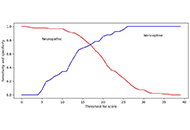 Validation and cultural adaption of the neuropathic pain screening questionnaire painDETECT in ChineseOpen AccessOriginal ArticleAim: The aim of this study was to validate a Chinese version of the painDETECT questionnaire (PD-Q) for the screening and assessment of neuropathic pain (NeP) in a Hong Kong Chinese population. ...Howan Leung ... Rainer FreynhagenPublished: June 14, 2024 Explor Neurosci. DOI: 10.37349/en.2024.00046
Validation and cultural adaption of the neuropathic pain screening questionnaire painDETECT in ChineseOpen AccessOriginal ArticleAim: The aim of this study was to validate a Chinese version of the painDETECT questionnaire (PD-Q) for the screening and assessment of neuropathic pain (NeP) in a Hong Kong Chinese population. ...Howan Leung ... Rainer FreynhagenPublished: June 14, 2024 Explor Neurosci. DOI: 10.37349/en.2024.00046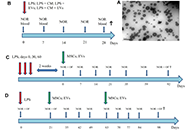 Extracellular vesicles derived from mesenchymal stem cells ameliorate cognitive impairment caused by neuroinflammation in young but not aged miceOpen AccessOriginal ArticleAim: The aim of this work was to study the effects of extracellular vesicles (EVs) derived from mesenchymal stem cells (MSCs) on inflammation-impaired cognitive functions and the brain of mice. ...Olena Lykhmus ... Vitalii KordiumPublished: June 12, 2024 Explor Neurosci. DOI: 10.37349/en.2024.00045
Extracellular vesicles derived from mesenchymal stem cells ameliorate cognitive impairment caused by neuroinflammation in young but not aged miceOpen AccessOriginal ArticleAim: The aim of this work was to study the effects of extracellular vesicles (EVs) derived from mesenchymal stem cells (MSCs) on inflammation-impaired cognitive functions and the brain of mice. ...Olena Lykhmus ... Vitalii KordiumPublished: June 12, 2024 Explor Neurosci. DOI: 10.37349/en.2024.00045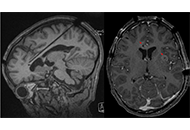 Using magnetic resonance-guided laser interstitial thermal therapy corpus callosotomy to lateralize a seizure focus for staged surgical approachOpen AccessCase ReportNew onset refractory status epilepticus (NORSE) is an etiologically heterogeneous condition that is associated with high morbidity and mortality. NORSE is often refractory to medical management prom...Kabir Sheikh ... Jeffrey RaskinPublished: May 31, 2024 Explor Neurosci. DOI: 10.37349/en.2024.00044
Using magnetic resonance-guided laser interstitial thermal therapy corpus callosotomy to lateralize a seizure focus for staged surgical approachOpen AccessCase ReportNew onset refractory status epilepticus (NORSE) is an etiologically heterogeneous condition that is associated with high morbidity and mortality. NORSE is often refractory to medical management prom...Kabir Sheikh ... Jeffrey RaskinPublished: May 31, 2024 Explor Neurosci. DOI: 10.37349/en.2024.00044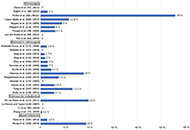 Current advances in epilepsy among patients with arteriovenous malformationsOpen AccessReviewEpileptic seizures are prevalent in people with brain vascular abnormalities like arteriovenous malformations (AVMs) and cavernous malformations, greatly affecting their quality of life. The connect...Joham Choque-Velasquez ... Alder Fernando Valenzuela-RangelPublished: May 13, 2024 Explor Neurosci. DOI: 10.37349/en.2024.00043
Current advances in epilepsy among patients with arteriovenous malformationsOpen AccessReviewEpileptic seizures are prevalent in people with brain vascular abnormalities like arteriovenous malformations (AVMs) and cavernous malformations, greatly affecting their quality of life. The connect...Joham Choque-Velasquez ... Alder Fernando Valenzuela-RangelPublished: May 13, 2024 Explor Neurosci. DOI: 10.37349/en.2024.00043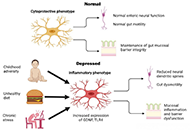 Do enteric glial cells play a role in the pathophysiology of major depression?Open AccessReviewMajor depressive disorder (MDD) is a common mental disorder associated with significant suffering and disability. Recent evidence has highlighted the role of the gut-brain axis in the pathogenesis o...Ravi Philip RajkumarPublished: April 28, 2024 Explor Neurosci. DOI: 10.37349/en.2024.00042
Do enteric glial cells play a role in the pathophysiology of major depression?Open AccessReviewMajor depressive disorder (MDD) is a common mental disorder associated with significant suffering and disability. Recent evidence has highlighted the role of the gut-brain axis in the pathogenesis o...Ravi Philip RajkumarPublished: April 28, 2024 Explor Neurosci. DOI: 10.37349/en.2024.00042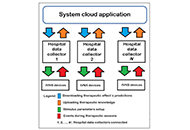 First outcomes of a therapeutic platform for drug resistant epilepsy based on transcutaneous electrical vagus nerve stimulationOpen AccessOriginal ArticleAim: The aim of this paper is to discuss the main features and first outcomes of a therapeutic platform proposed to implement a public health therapeutic service for patients suffering refractory...Rene Ivan Gonzalez-Fernandez ... Jose Luis Hernandez-CaceresPublished: April 12, 2024 Explor Neurosci. DOI: 10.37349/en.2024.00041
First outcomes of a therapeutic platform for drug resistant epilepsy based on transcutaneous electrical vagus nerve stimulationOpen AccessOriginal ArticleAim: The aim of this paper is to discuss the main features and first outcomes of a therapeutic platform proposed to implement a public health therapeutic service for patients suffering refractory...Rene Ivan Gonzalez-Fernandez ... Jose Luis Hernandez-CaceresPublished: April 12, 2024 Explor Neurosci. DOI: 10.37349/en.2024.00041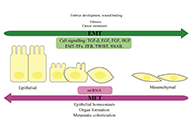 Brain metastasis from the perspective of molecular mechanisms and treatment, presenting a new approach for targeting ion channels by nano drugsOpen AccessReviewBrain metastasis is the most prevalent neurologic problem of systemic cancer and it can increase the mortality rate in patients with cancer. It occurs more in patients with lung cancer, breast cance...Zohreh Khosravi DehaghiPublished: April 10, 2024 Explor Neurosci. DOI: 10.37349/en.2024.00040
Brain metastasis from the perspective of molecular mechanisms and treatment, presenting a new approach for targeting ion channels by nano drugsOpen AccessReviewBrain metastasis is the most prevalent neurologic problem of systemic cancer and it can increase the mortality rate in patients with cancer. It occurs more in patients with lung cancer, breast cance...Zohreh Khosravi DehaghiPublished: April 10, 2024 Explor Neurosci. DOI: 10.37349/en.2024.00040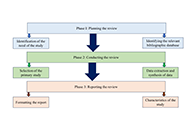 Role of antioxidants as immunity booster in obesity and diabetes: a systematic review on neuro-gliopathies perspectiveOpen AccessSystematic ReviewBackground: The main objective of the study was to carry out a systematic literature review to investigate the beneficial role of antioxidants in obesity and diabetes and the association of antio...Luxita Sharma, Dhananjay SharmaPublished: April 07, 2024 Explor Neurosci. DOI: 10.37349/en.2024.00039
Role of antioxidants as immunity booster in obesity and diabetes: a systematic review on neuro-gliopathies perspectiveOpen AccessSystematic ReviewBackground: The main objective of the study was to carry out a systematic literature review to investigate the beneficial role of antioxidants in obesity and diabetes and the association of antio...Luxita Sharma, Dhananjay SharmaPublished: April 07, 2024 Explor Neurosci. DOI: 10.37349/en.2024.00039 Crop and pesticide effects on gut microbiota and neurological functions: a reviewOpen AccessReviewPesticides are used to ensure the mass production and quality of foods, depending on the environment where they are grown. Trace amounts of pesticides are ingested through diet and high ratios of it...Tomomi Komura ... Yoshikazu NishikawaPublished: April 07, 2024 Explor Neurosci. DOI: 10.37349/en.2024.00038
Crop and pesticide effects on gut microbiota and neurological functions: a reviewOpen AccessReviewPesticides are used to ensure the mass production and quality of foods, depending on the environment where they are grown. Trace amounts of pesticides are ingested through diet and high ratios of it...Tomomi Komura ... Yoshikazu NishikawaPublished: April 07, 2024 Explor Neurosci. DOI: 10.37349/en.2024.00038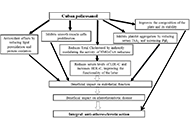 Cuban policosanol: a natural compound for ischemic stroke treatmentOpen AccessReviewStroke is among the leading causes of mortality and disability; therefore, it constitutes a relevant health problem. Cuban policosanol presents lipid-lowering, antiplatelet, antioxidant and vascular...Vivian Molina Cuevas, Ambar Oyarzábal YeraPublished: February 26, 2024 Explor Neurosci. DOI: 10.37349/en.2024.00037
Cuban policosanol: a natural compound for ischemic stroke treatmentOpen AccessReviewStroke is among the leading causes of mortality and disability; therefore, it constitutes a relevant health problem. Cuban policosanol presents lipid-lowering, antiplatelet, antioxidant and vascular...Vivian Molina Cuevas, Ambar Oyarzábal YeraPublished: February 26, 2024 Explor Neurosci. DOI: 10.37349/en.2024.00037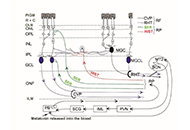 Current state of knowledge on the centrifugal visual system (including the pinealo-to-retinal connection) in mammals and its hypothesized role in circadian rhythmsOpen AccessReviewThe ubiquity of circadian rhythms in living organisms has generally been accepted by researchers over the last century. Indeed, morphology and molecular biology of the circadian clock were described...Viktória Vereczki ... Ágnes CsákiPublished: February 22, 2024 Explor Neurosci. DOI: 10.37349/en.2024.00036
Current state of knowledge on the centrifugal visual system (including the pinealo-to-retinal connection) in mammals and its hypothesized role in circadian rhythmsOpen AccessReviewThe ubiquity of circadian rhythms in living organisms has generally been accepted by researchers over the last century. Indeed, morphology and molecular biology of the circadian clock were described...Viktória Vereczki ... Ágnes CsákiPublished: February 22, 2024 Explor Neurosci. DOI: 10.37349/en.2024.00036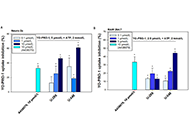 Antinociceptive effect and anti-inflammatory activity of 1,4-naphthoquinones in miceOpen AccessOriginal ArticleAim: The ability of synthetic 1,4-naphthoquinones (1,4-NQs) to prevent adenosine triphosphate (ATP)-induced and purinergic P2X7 receptor (P2X7R) mediated inflammation in macrophage and neurodegen...Sergei Kozlovskiy ... Dmitry AmininPublished: February 22, 2024 Explor Neurosci. DOI: 10.37349/en.2024.00035
Antinociceptive effect and anti-inflammatory activity of 1,4-naphthoquinones in miceOpen AccessOriginal ArticleAim: The ability of synthetic 1,4-naphthoquinones (1,4-NQs) to prevent adenosine triphosphate (ATP)-induced and purinergic P2X7 receptor (P2X7R) mediated inflammation in macrophage and neurodegen...Sergei Kozlovskiy ... Dmitry AmininPublished: February 22, 2024 Explor Neurosci. DOI: 10.37349/en.2024.00035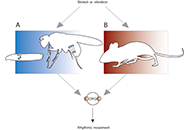 A mechanism for tuning proprioception proposed by research in Drosophila and mammalsOpen AccessReviewProprioception provides important sensory feedback regarding the position of an animal’s body and limbs in space. This interacts with a central pattern generator responsible for rhythmic movement,...Iain HunterPublished: February 21, 2024 Explor Neurosci. DOI: 10.37349/en.2024.00034
A mechanism for tuning proprioception proposed by research in Drosophila and mammalsOpen AccessReviewProprioception provides important sensory feedback regarding the position of an animal’s body and limbs in space. This interacts with a central pattern generator responsible for rhythmic movement,...Iain HunterPublished: February 21, 2024 Explor Neurosci. DOI: 10.37349/en.2024.00034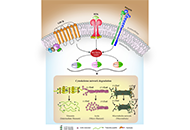 Connecting the ends: signaling via receptor tyrosine kinases and cytoskeletal degradation in neurodegenerationOpen AccessReviewReceptor tyrosine kinases (RTKs) are known to perform versatile roles in disease landscapes, which determine the fate of the cell. Although much has been discussed from the perspective of proliferat...Priyanka Sengupta ... Debashis MukhopadhyayPublished: February 20, 2024 Explor Neurosci. DOI: 10.37349/en.2024.00033
Connecting the ends: signaling via receptor tyrosine kinases and cytoskeletal degradation in neurodegenerationOpen AccessReviewReceptor tyrosine kinases (RTKs) are known to perform versatile roles in disease landscapes, which determine the fate of the cell. Although much has been discussed from the perspective of proliferat...Priyanka Sengupta ... Debashis MukhopadhyayPublished: February 20, 2024 Explor Neurosci. DOI: 10.37349/en.2024.00033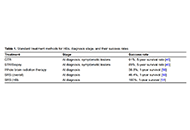 Emerging therapies of hemangioblastomasOpen AccessReviewHemangioblastoma are benign, vascularized cranial tumors caused by autosomal dominant inherited von Hippel-Lindau disease or can appear sporadically. This review will investigate current and emergin...Chaitanya Sanghadia ... Brandon Lucke-WoldPublished: December 29, 2023 Explor Neurosci. DOI: 10.37349/en.2023.00031
Emerging therapies of hemangioblastomasOpen AccessReviewHemangioblastoma are benign, vascularized cranial tumors caused by autosomal dominant inherited von Hippel-Lindau disease or can appear sporadically. This review will investigate current and emergin...Chaitanya Sanghadia ... Brandon Lucke-WoldPublished: December 29, 2023 Explor Neurosci. DOI: 10.37349/en.2023.00031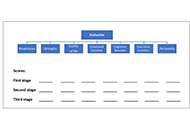 Psychology of bipolar depression: revisiting past and present researches, prospects ahead, and moving toward future directionsOpen AccessReviewBipolar disorder (BD) is a debilitating psychiatric disorder characterized by recurrent depression, mania, and hypomania episodes. The interaction of psychological, neuropsychological, and neurobiol...Behrooz AfshariPublished: December 29, 2023 Explor Neurosci. DOI: 10.37349/en.2023.00032
Psychology of bipolar depression: revisiting past and present researches, prospects ahead, and moving toward future directionsOpen AccessReviewBipolar disorder (BD) is a debilitating psychiatric disorder characterized by recurrent depression, mania, and hypomania episodes. The interaction of psychological, neuropsychological, and neurobiol...Behrooz AfshariPublished: December 29, 2023 Explor Neurosci. DOI: 10.37349/en.2023.00032 Neuroprotective compounds from three common medicinal plants of West Bengal, India: a mini reviewOpen AccessMini ReviewNeural disorders refer to conditions of the nervous system due to infection or degeneration of the neurons leading to either neurodegenerative disorder or neuropsychiatric disorder. Some such disord...Suvendu Ghosh ... Debosree GhoshPublished: December 26, 2023 Explor Neurosci. DOI: 10.37349/en.2023.00030
Neuroprotective compounds from three common medicinal plants of West Bengal, India: a mini reviewOpen AccessMini ReviewNeural disorders refer to conditions of the nervous system due to infection or degeneration of the neurons leading to either neurodegenerative disorder or neuropsychiatric disorder. Some such disord...Suvendu Ghosh ... Debosree GhoshPublished: December 26, 2023 Explor Neurosci. DOI: 10.37349/en.2023.00030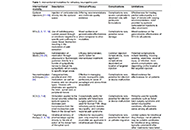 Interventional procedures for refractory neuropathic painOpen AccessReviewNeuropathic pain is an increasingly common disease affecting millions of individuals worldwide. Refractory pain poses a significant impact on patients’ quality of life, financial and economic stab...Hannah G. Matejowsky ... Alan D. KayePublished: December 22, 2023 Explor Neurosci. DOI: 10.37349/en.2023.00028
Interventional procedures for refractory neuropathic painOpen AccessReviewNeuropathic pain is an increasingly common disease affecting millions of individuals worldwide. Refractory pain poses a significant impact on patients’ quality of life, financial and economic stab...Hannah G. Matejowsky ... Alan D. KayePublished: December 22, 2023 Explor Neurosci. DOI: 10.37349/en.2023.00028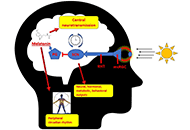 Neuropharmacologic modulation of the melatonergic systemOpen AccessReviewThe circadian rhythm is a critical system that governs an organism’s functions in alignment with the light-dark cycle. Melatonin release from the pineal gland plays a crucial role in regulating th...Utku Aykan ... Canan UluogluPublished: December 22, 2023 Explor Neurosci. DOI: 10.37349/en.2023.00029
Neuropharmacologic modulation of the melatonergic systemOpen AccessReviewThe circadian rhythm is a critical system that governs an organism’s functions in alignment with the light-dark cycle. Melatonin release from the pineal gland plays a crucial role in regulating th...Utku Aykan ... Canan UluogluPublished: December 22, 2023 Explor Neurosci. DOI: 10.37349/en.2023.00029 Carotid endarterectomy compared with carotid artery stenting for extracranial carotid artery stenosis: a retrospective single-centre studyOpen AccessOriginal ArticleAim: One of the main risk factors for an ischemic stroke is significant carotid artery stenosis, and extracranial severe carotid artery stenosis accounts for 20% of ischemic strokes. Prior to the...Oğuzhan Birdal ... M. Hakan TaşPublished: December 14, 2023 Explor Neurosci. DOI: 10.37349/en.2023.00027
Carotid endarterectomy compared with carotid artery stenting for extracranial carotid artery stenosis: a retrospective single-centre studyOpen AccessOriginal ArticleAim: One of the main risk factors for an ischemic stroke is significant carotid artery stenosis, and extracranial severe carotid artery stenosis accounts for 20% of ischemic strokes. Prior to the...Oğuzhan Birdal ... M. Hakan TaşPublished: December 14, 2023 Explor Neurosci. DOI: 10.37349/en.2023.00027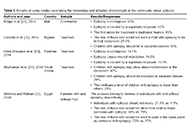 Stigma and psychosocial problems in patients with epilepsyOpen AccessReviewEpilepsy, a prevalent neurological disorder, is characterized by chronic seizures resulting from abnormal electrical activity in the brain. Adequate medical treatment allows roughly 70% of patients ...Kubra YeniPublished: December 06, 2023 Explor Neurosci. DOI: 10.37349/en.2023.00026
Stigma and psychosocial problems in patients with epilepsyOpen AccessReviewEpilepsy, a prevalent neurological disorder, is characterized by chronic seizures resulting from abnormal electrical activity in the brain. Adequate medical treatment allows roughly 70% of patients ...Kubra YeniPublished: December 06, 2023 Explor Neurosci. DOI: 10.37349/en.2023.00026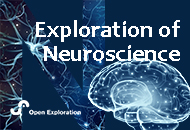 Nutritional treatment with the ketogenic diet in children with refractory epilepsy: a narrative reviewOpen AccessMini ReviewThe two mainstays of therapy for refractory epilepsy are medication and surgery. Child behavioral and cognitive aspects of epilepsy can be improved by using a specialized dietary regimen such as the...Srilaxmi Vityala ... Swathi NenavathPublished: October 30, 2023 Explor Neurosci. DOI: 10.37349/en.2023.00025
Nutritional treatment with the ketogenic diet in children with refractory epilepsy: a narrative reviewOpen AccessMini ReviewThe two mainstays of therapy for refractory epilepsy are medication and surgery. Child behavioral and cognitive aspects of epilepsy can be improved by using a specialized dietary regimen such as the...Srilaxmi Vityala ... Swathi NenavathPublished: October 30, 2023 Explor Neurosci. DOI: 10.37349/en.2023.00025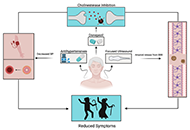 Investigation into the vascular contributors to dementia and the associated treatmentsOpen AccessReviewAs the average lifespan has increased, memory disorders have become a more pressing public health concern. However, dementia in the elderly population is often neglected in light of other health pri...Caroline Grace Davidson ... Brandon Lucke-WoldPublished: October 15, 2023 Explor Neurosci. DOI: 10.37349/en.2023.00023
Investigation into the vascular contributors to dementia and the associated treatmentsOpen AccessReviewAs the average lifespan has increased, memory disorders have become a more pressing public health concern. However, dementia in the elderly population is often neglected in light of other health pri...Caroline Grace Davidson ... Brandon Lucke-WoldPublished: October 15, 2023 Explor Neurosci. DOI: 10.37349/en.2023.00023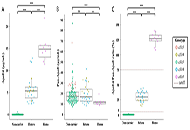 Estimation of the allelic status of apolipoprotein E4 isoforms with fully automated LUMIPULSE® assaysOpen AccessOriginal ArticleAim: Apolipoprotein E (ApoE) isoforms, especially the ApoE4 isoform, are genetic risk factors for Alzheimer’s disease (AD). Moreover, the APOE ε4 haplotype has a dose-dependent association wit...Tatsushi Yuri ... Hisashi NojimaPublished: October 16, 2023 Explor Neurosci. DOI: 10.37349/en.2023.00024
Estimation of the allelic status of apolipoprotein E4 isoforms with fully automated LUMIPULSE® assaysOpen AccessOriginal ArticleAim: Apolipoprotein E (ApoE) isoforms, especially the ApoE4 isoform, are genetic risk factors for Alzheimer’s disease (AD). Moreover, the APOE ε4 haplotype has a dose-dependent association wit...Tatsushi Yuri ... Hisashi NojimaPublished: October 16, 2023 Explor Neurosci. DOI: 10.37349/en.2023.00024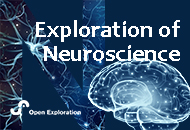 Sleep disorders contribute to the development of dementia and Alzheimer’s diseaseOpen AccessReviewLife is the highest form of adaptation to the environment which is based on energy metabolism. To maintain life, the neuromuscular system must constantly interact with the environment. The striatal ...Janusz Wiesław BłaszczykPublished: October 08, 2023 Explor Neurosci. DOI: 10.37349/en.2023.00022
Sleep disorders contribute to the development of dementia and Alzheimer’s diseaseOpen AccessReviewLife is the highest form of adaptation to the environment which is based on energy metabolism. To maintain life, the neuromuscular system must constantly interact with the environment. The striatal ...Janusz Wiesław BłaszczykPublished: October 08, 2023 Explor Neurosci. DOI: 10.37349/en.2023.00022 Negative environmental influences on the developing brain mediated by epigenetic modificationsOpen AccessReviewBrain development, a complex process, consisting of several phases, starting as early as two weeks after conception, and continuing through childhood till early adolescence, is crucial for the devel...Maya Komar-Fletcher ... Joanna Michalina JurekPublished: September 28, 2023 Explor Neurosci. DOI: 10.37349/en.2023.00021
Negative environmental influences on the developing brain mediated by epigenetic modificationsOpen AccessReviewBrain development, a complex process, consisting of several phases, starting as early as two weeks after conception, and continuing through childhood till early adolescence, is crucial for the devel...Maya Komar-Fletcher ... Joanna Michalina JurekPublished: September 28, 2023 Explor Neurosci. DOI: 10.37349/en.2023.00021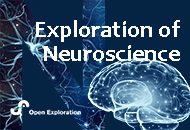 Multiple sclerosis with comorbidity depression and its association with vitamin D deficiency in a narrative review of the current literatureOpen AccessReviewOver the past decade, knowledge of the pathophysiology and immunology of multiple sclerosis (MS) and depression, and the complex links to vitamin D (VitD) balance, has increased rapidly. Both diseas...Hans-Klaus GoischkePublished: August 31, 2023 Explor Neurosci. DOI: 10.37349/en.2023.00020
Multiple sclerosis with comorbidity depression and its association with vitamin D deficiency in a narrative review of the current literatureOpen AccessReviewOver the past decade, knowledge of the pathophysiology and immunology of multiple sclerosis (MS) and depression, and the complex links to vitamin D (VitD) balance, has increased rapidly. Both diseas...Hans-Klaus GoischkePublished: August 31, 2023 Explor Neurosci. DOI: 10.37349/en.2023.00020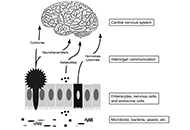 Modify gut microbiome in autism: a promising strategy?Open AccessReviewThe gut microbiota and dysbiosis have been implicated in various metabolic diseases and gastrointestinal disorders. Recently, there has been growing evidence suggesting the influence of gut microbio...Jean Demarquoy ... Caroline DemarquoyPublished: August 31, 2023 Explor Neurosci. DOI: 10.37349/en.2023.00018
Modify gut microbiome in autism: a promising strategy?Open AccessReviewThe gut microbiota and dysbiosis have been implicated in various metabolic diseases and gastrointestinal disorders. Recently, there has been growing evidence suggesting the influence of gut microbio...Jean Demarquoy ... Caroline DemarquoyPublished: August 31, 2023 Explor Neurosci. DOI: 10.37349/en.2023.00018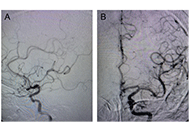 Covered stent graft for treatment of carotid artery stenosis with post-stenotic aneurysmOpen AccessCase ReportSeveral bare metals, self-expanding stents have been approved by the Food and Drug Administration (FDA) to treat carotid stenosis, but no covered stents have been particularly examined or approved f...Mosaad Soliman ... Reem SolimanPublished: August 31, 2023 Explor Neurosci. DOI: 10.37349/en.2023.00019
Covered stent graft for treatment of carotid artery stenosis with post-stenotic aneurysmOpen AccessCase ReportSeveral bare metals, self-expanding stents have been approved by the Food and Drug Administration (FDA) to treat carotid stenosis, but no covered stents have been particularly examined or approved f...Mosaad Soliman ... Reem SolimanPublished: August 31, 2023 Explor Neurosci. DOI: 10.37349/en.2023.00019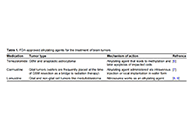 Therapeutic potential of extracellular vesicles in Parkinson’s diseaseOpen AccessReviewGlobally, the incidence of Parkinson’s disease (PD) is increasing faster than other neurodegenerative disorders. Neuropathologically, PD is characterized by the loss of dopaminergic neurons in the...Michelli Ramires Teixeira ... Rodrigo Pinheiro AraldiPublished: June 29, 2023 Explor Neurosci. DOI: 10.37349/en.2023.00016
Therapeutic potential of extracellular vesicles in Parkinson’s diseaseOpen AccessReviewGlobally, the incidence of Parkinson’s disease (PD) is increasing faster than other neurodegenerative disorders. Neuropathologically, PD is characterized by the loss of dopaminergic neurons in the...Michelli Ramires Teixeira ... Rodrigo Pinheiro AraldiPublished: June 29, 2023 Explor Neurosci. DOI: 10.37349/en.2023.00016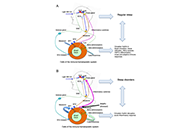 Circadian regulation of the immune-hematopoietic systemOpen AccessReviewEarth’s rotation generates the basic circadian rhythm of day and night to which all living organisms must adapt to survive. In mammals, this happens thanks to a central clock located in the suprac...Georges MaestroniPublished: June 30, 2023 Explor Neurosci. DOI: 10.37349/en.2023.00017
Circadian regulation of the immune-hematopoietic systemOpen AccessReviewEarth’s rotation generates the basic circadian rhythm of day and night to which all living organisms must adapt to survive. In mammals, this happens thanks to a central clock located in the suprac...Georges MaestroniPublished: June 30, 2023 Explor Neurosci. DOI: 10.37349/en.2023.00017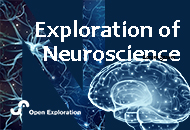 Mesenchymal stem cell stroke therapy: current limitations in its clinical translationOpen AccessPerspectiveFor more than a decade now, research studies, proof of concept work, and clinical trials have endeavored to understand how mesenchymal stem cells might be used to help protect, repair, and/or regene...Ylenia Pastorello, Mark SlevinPublished: June 28, 2023 Explor Neurosci. DOI: 10.37349/en.2023.00015
Mesenchymal stem cell stroke therapy: current limitations in its clinical translationOpen AccessPerspectiveFor more than a decade now, research studies, proof of concept work, and clinical trials have endeavored to understand how mesenchymal stem cells might be used to help protect, repair, and/or regene...Ylenia Pastorello, Mark SlevinPublished: June 28, 2023 Explor Neurosci. DOI: 10.37349/en.2023.00015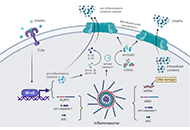 Inflammatory responses involved in post-cardiac arrest brain injury: mechanisms, regulation, and therapeutic potentialOpen AccessReviewNeuroinflammation plays a key role in the pathogenesis of post-cardiac arrest (CA) brain injury. Innate immune cells sense a variety of danger signals through pattern-recognition receptors and evoke...Yuzhen Zhang ... Kaibin HuangPublished: April 26, 2023 Explor Neurosci. DOI: 10.37349/en.2023.00014
Inflammatory responses involved in post-cardiac arrest brain injury: mechanisms, regulation, and therapeutic potentialOpen AccessReviewNeuroinflammation plays a key role in the pathogenesis of post-cardiac arrest (CA) brain injury. Innate immune cells sense a variety of danger signals through pattern-recognition receptors and evoke...Yuzhen Zhang ... Kaibin HuangPublished: April 26, 2023 Explor Neurosci. DOI: 10.37349/en.2023.00014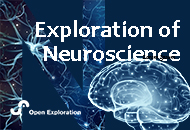 Metabolic correction of neurodegenerative pathologies: the role of macronutrients and timingOpen AccessReviewDespite decades of intensive research, effective treatment and prevention strategies for neurodegenerative diseases (NDDs) remain elusive. This review focuses on Alzheimer’s and Parkinson’s dise...Yuri Zilberter, Tanya ZilberterPublished: April 21, 2023 Explor Neurosci. DOI: 10.37349/en.2023.00013
Metabolic correction of neurodegenerative pathologies: the role of macronutrients and timingOpen AccessReviewDespite decades of intensive research, effective treatment and prevention strategies for neurodegenerative diseases (NDDs) remain elusive. This review focuses on Alzheimer’s and Parkinson’s dise...Yuri Zilberter, Tanya ZilberterPublished: April 21, 2023 Explor Neurosci. DOI: 10.37349/en.2023.00013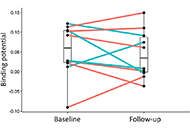 The effect of the tumour necrosis factor-alpha-inhibitor etanercept on microglial activation patients with mild cognitive impairment—a PET studyOpen AccessOriginal ArticleAim: Microglial activation is increasingly recognised as a factor in the progression of Alzheimer’s disease (AD) and may be modified by systemic inflammatory signals including serum tumour necrosis factor (TNF)-α. The aim was to investigate whether blockade of peripheral TNF-α with peripheral inhibitors such as etanercept reduces microglial activation in prodromal AD. ...Alexander Gerhard ... Clive HolmesPublished: March 26, 2023 Explor Neurosci. DOI: 10.37349/en.2023.00012
The effect of the tumour necrosis factor-alpha-inhibitor etanercept on microglial activation patients with mild cognitive impairment—a PET studyOpen AccessOriginal ArticleAim: Microglial activation is increasingly recognised as a factor in the progression of Alzheimer’s disease (AD) and may be modified by systemic inflammatory signals including serum tumour necrosis factor (TNF)-α. The aim was to investigate whether blockade of peripheral TNF-α with peripheral inhibitors such as etanercept reduces microglial activation in prodromal AD. ...Alexander Gerhard ... Clive HolmesPublished: March 26, 2023 Explor Neurosci. DOI: 10.37349/en.2023.00012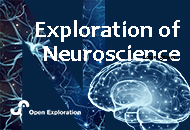 Treatment concept successfully translated into human patientsOpen AccessEditorialDirk M. HermannPublished: February 28, 2023 Explor Neurosci. DOI: 10.37349/en.2023.00011
Treatment concept successfully translated into human patientsOpen AccessEditorialDirk M. HermannPublished: February 28, 2023 Explor Neurosci. DOI: 10.37349/en.2023.00011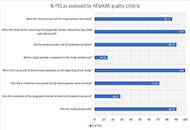 Genetic plasma biomarkers associated with ischemic strokeOpen AccessSystematic ReviewAim: Stroke is one of the leading causes of death and disability worldwide. Plasma biomarkers have long been used to evaluate physiological or pathological processes and to make predictions about...Mihai Andrei Ruscu ... Aurel Popa-WagnerPublished: February 26, 2023 Explor Neurosci. DOI: 10.37349/en.2023.00010
Genetic plasma biomarkers associated with ischemic strokeOpen AccessSystematic ReviewAim: Stroke is one of the leading causes of death and disability worldwide. Plasma biomarkers have long been used to evaluate physiological or pathological processes and to make predictions about...Mihai Andrei Ruscu ... Aurel Popa-WagnerPublished: February 26, 2023 Explor Neurosci. DOI: 10.37349/en.2023.00010 Update for astrocytomas: medical and surgical management considerationsOpen AccessReviewAstrocytomas include a wide range of tumors with unique mutations and varying grades of malignancy. These tumors all originate from the astrocyte, a star-shaped glial cell that plays a major role in...Matthew Willman ... Brandon Lucke-WoldPublished: February 23, 2023 Explor Neurosci. DOI: 10.37349/en.2023.00009
Update for astrocytomas: medical and surgical management considerationsOpen AccessReviewAstrocytomas include a wide range of tumors with unique mutations and varying grades of malignancy. These tumors all originate from the astrocyte, a star-shaped glial cell that plays a major role in...Matthew Willman ... Brandon Lucke-WoldPublished: February 23, 2023 Explor Neurosci. DOI: 10.37349/en.2023.00009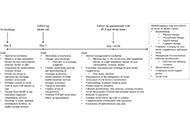 Updates in mechanical thrombectomyOpen AccessReviewStroke is a leading cause of morbidity and mortality. The advent of mechanical thrombectomy has largely improved patient outcomes. This article reviews the features and outcomes associated with aspi...Kevin Pierre ... Brandon Lucke-WoldPublished: December 30, 2022 Explor Neurosci. DOI: 10.37349/en.2022.00007
Updates in mechanical thrombectomyOpen AccessReviewStroke is a leading cause of morbidity and mortality. The advent of mechanical thrombectomy has largely improved patient outcomes. This article reviews the features and outcomes associated with aspi...Kevin Pierre ... Brandon Lucke-WoldPublished: December 30, 2022 Explor Neurosci. DOI: 10.37349/en.2022.00007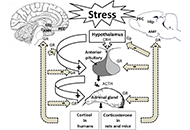 Cellular and molecular mechanisms of stress-induced memory impairmentOpen AccessReviewExposure to stressful conditions plays a critical role in brain processes, including neural plasticity, synaptic transmission, and cognitive functions. Since memory-related brain regions, the hippocampus (Hip), the amygdala, and the prefrontal cortex, express high glucocorticoid receptors (GRs), these areas are the potential targets of stress hormones. Stress affects memory encoding, consolidation, and retrieval, which may depend on many factors such as the type, duration, the intensity of the stressor or the brain region. Here, this review mainly focused on the mechanisms involved in stress-induced memory impairment. Acute/chronic stress induces structural and functional changes in neurons and glial cells. Dendritic arborization, reduction of dendritic spine density, and alteration in glutamatergic-mediated synaptic transmission via N-methyl-D-aspartate (NMDA) and α-amino-3-hydroxy-5-methyl-4-isoxazole propionic acid (AMPA) receptors are mechanisms that stress affect long-term memory formation. Exposure to acute or chronic stress could interplay with multiple neurotransmitter signaling, modulating the neuronal circuits involved in memory impairment or state-dependent learning. Stress hormones also modulate the expression of microRNAs in the specific brain regions responsible for stress-induced behaviors. Because of expressing GRs in astrocytes and microglial cells, stress could affect the morphology, structure, and functions of these glial cells in memory-related brain regions. Astrocytes play a crucial role in stress-induced aversive or fear memory formation. Over-activation of the microglial cells enhances the release of inflammatory cytokines, which results in neuronal injury. Stress has a prominent role in cognitive decline to induces memory problems, particularly in older adults. Due to the issue’s importance, here the provided overview attempted to address the question of how stress alters neuronal epigenetic regulators, synaptic transmissions, and glial activity in the brain....Ameneh Rezayof ... Shiva HashemizadehPublished: December 30, 2022 Explor Neurosci. DOI: 10.37349/en.2022.00008
Cellular and molecular mechanisms of stress-induced memory impairmentOpen AccessReviewExposure to stressful conditions plays a critical role in brain processes, including neural plasticity, synaptic transmission, and cognitive functions. Since memory-related brain regions, the hippocampus (Hip), the amygdala, and the prefrontal cortex, express high glucocorticoid receptors (GRs), these areas are the potential targets of stress hormones. Stress affects memory encoding, consolidation, and retrieval, which may depend on many factors such as the type, duration, the intensity of the stressor or the brain region. Here, this review mainly focused on the mechanisms involved in stress-induced memory impairment. Acute/chronic stress induces structural and functional changes in neurons and glial cells. Dendritic arborization, reduction of dendritic spine density, and alteration in glutamatergic-mediated synaptic transmission via N-methyl-D-aspartate (NMDA) and α-amino-3-hydroxy-5-methyl-4-isoxazole propionic acid (AMPA) receptors are mechanisms that stress affect long-term memory formation. Exposure to acute or chronic stress could interplay with multiple neurotransmitter signaling, modulating the neuronal circuits involved in memory impairment or state-dependent learning. Stress hormones also modulate the expression of microRNAs in the specific brain regions responsible for stress-induced behaviors. Because of expressing GRs in astrocytes and microglial cells, stress could affect the morphology, structure, and functions of these glial cells in memory-related brain regions. Astrocytes play a crucial role in stress-induced aversive or fear memory formation. Over-activation of the microglial cells enhances the release of inflammatory cytokines, which results in neuronal injury. Stress has a prominent role in cognitive decline to induces memory problems, particularly in older adults. Due to the issue’s importance, here the provided overview attempted to address the question of how stress alters neuronal epigenetic regulators, synaptic transmissions, and glial activity in the brain....Ameneh Rezayof ... Shiva HashemizadehPublished: December 30, 2022 Explor Neurosci. DOI: 10.37349/en.2022.00008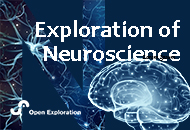 Should we rethink neurodegeneration?Open AccessPerspectiveThe therapy of many neurological disorders has advanced markedly during recent decades. Not so for neurodegenerative disorders. Early detection, deep individual genotyping and phenotyping, and perso...Jussi O. T. SipiläPublished: December 26, 2022 Explor Neurosci. DOI: 10.37349/en.2022.00006
Should we rethink neurodegeneration?Open AccessPerspectiveThe therapy of many neurological disorders has advanced markedly during recent decades. Not so for neurodegenerative disorders. Early detection, deep individual genotyping and phenotyping, and perso...Jussi O. T. SipiläPublished: December 26, 2022 Explor Neurosci. DOI: 10.37349/en.2022.00006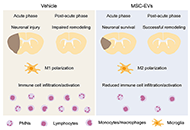 Neuroprotective and neurorestorative actions of mesenchymal stromal cell-derived small extracellular vesicles in the ischemic brainOpen AccessReviewIschemic stroke is a highly prevalent condition that frequently results in life-long disability and death. Considerable efforts have been made to establish treatments that prevent secondary ischemic...Chen Wang ... Dirk M. HermannPublished: October 09, 2022 Explor Neurosci. DOI: 10.37349/en.2022.00005
Neuroprotective and neurorestorative actions of mesenchymal stromal cell-derived small extracellular vesicles in the ischemic brainOpen AccessReviewIschemic stroke is a highly prevalent condition that frequently results in life-long disability and death. Considerable efforts have been made to establish treatments that prevent secondary ischemic...Chen Wang ... Dirk M. HermannPublished: October 09, 2022 Explor Neurosci. DOI: 10.37349/en.2022.00005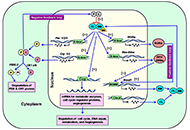 Impact of circadian clock dysfunction on human healthOpen AccessReviewAll living organisms exhibit circadian rhythms. Humans show circadian rhythm of the different physiological functions such as sleep-wake cycle, core body temperature, feeding behavior, metabolic act...Saptadip Samanta, Sk Asif AliPublished: September 29, 2022 Explor Neurosci. DOI: 10.37349/en.2022.00002
Impact of circadian clock dysfunction on human healthOpen AccessReviewAll living organisms exhibit circadian rhythms. Humans show circadian rhythm of the different physiological functions such as sleep-wake cycle, core body temperature, feeding behavior, metabolic act...Saptadip Samanta, Sk Asif AliPublished: September 29, 2022 Explor Neurosci. DOI: 10.37349/en.2022.00002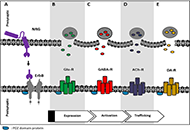 Neuregulins: subcellular localization, signaling pathways and their relationship with neuroplasticity and neurological diseasesOpen AccessReviewNeuregulins (NRGs) and their cognate ErbB receptors (ErbB2–ErbB4) constitute a vast group of proteins encoded by six different genes (NRG1–6) and many isoforms with critical ...Marines Longart ... Juan Carlos MartínezPublished: September 29, 2022 Explor Neurosci. DOI: 10.37349/en.2022.00003
Neuregulins: subcellular localization, signaling pathways and their relationship with neuroplasticity and neurological diseasesOpen AccessReviewNeuregulins (NRGs) and their cognate ErbB receptors (ErbB2–ErbB4) constitute a vast group of proteins encoded by six different genes (NRG1–6) and many isoforms with critical ...Marines Longart ... Juan Carlos MartínezPublished: September 29, 2022 Explor Neurosci. DOI: 10.37349/en.2022.00003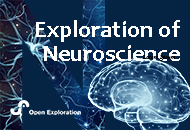 Recent developments and future perspectives of neuropathologyOpen AccessPerspectiveThis brief statement describes some recent achievements of neuropathological research, with the focus on Alzheimer’s and other age-related diseases, neurodegenerative disorders (tauopathies, synucleinopathies), multimorbidity of the aged brain, multiple sclerosis (MS), and other neuroinflammatory disorders, including central nervous system involvement by coronavirus disease 2019 (COVID-19), as well as new developments in neurovascular diseases, neurooncology, and myopathies. Although neuropathology, using modern technologies, such as cryo-electron microscopy, proteomic and experimental methods, has helped to increase diagnostic accuracy and provided insight into the pathogenesis of many neurological disorders, future studies in co-operation with clinical and other neurosciences should overcome the challenges of disease-influencing therapeutic approaches. ...Kurt A. JellingerPublished: September 30, 2022 Explor Neurosci. DOI: 10.37349/en.2022.00004
Recent developments and future perspectives of neuropathologyOpen AccessPerspectiveThis brief statement describes some recent achievements of neuropathological research, with the focus on Alzheimer’s and other age-related diseases, neurodegenerative disorders (tauopathies, synucleinopathies), multimorbidity of the aged brain, multiple sclerosis (MS), and other neuroinflammatory disorders, including central nervous system involvement by coronavirus disease 2019 (COVID-19), as well as new developments in neurovascular diseases, neurooncology, and myopathies. Although neuropathology, using modern technologies, such as cryo-electron microscopy, proteomic and experimental methods, has helped to increase diagnostic accuracy and provided insight into the pathogenesis of many neurological disorders, future studies in co-operation with clinical and other neurosciences should overcome the challenges of disease-influencing therapeutic approaches. ...Kurt A. JellingerPublished: September 30, 2022 Explor Neurosci. DOI: 10.37349/en.2022.00004 Cutting edges in neuroscience to exceed bordersOpen AccessEditorialDirk M. HermannPublished: September 01, 2022 Explor Neurosci. DOI: 10.37349/en.2022.00001
Cutting edges in neuroscience to exceed bordersOpen AccessEditorialDirk M. HermannPublished: September 01, 2022 Explor Neurosci. DOI: 10.37349/en.2022.00001 -